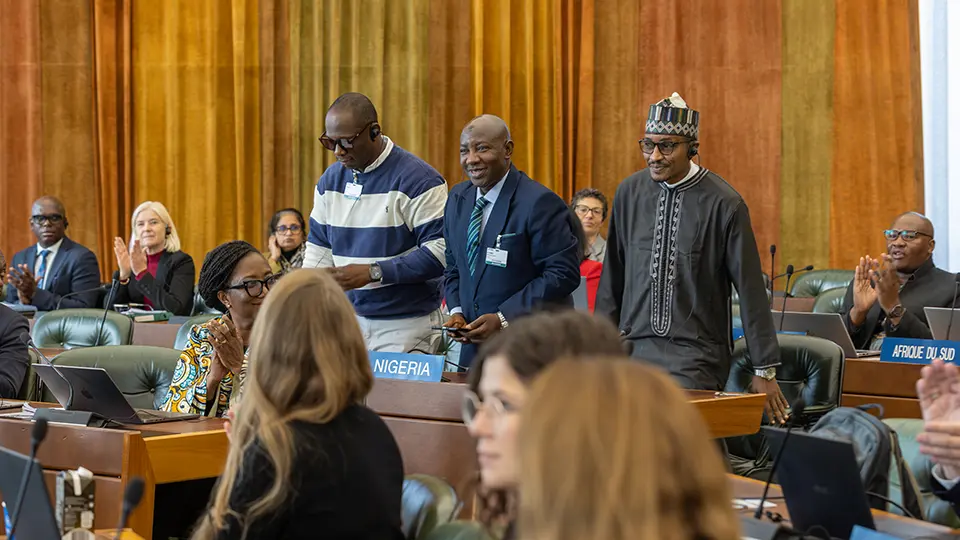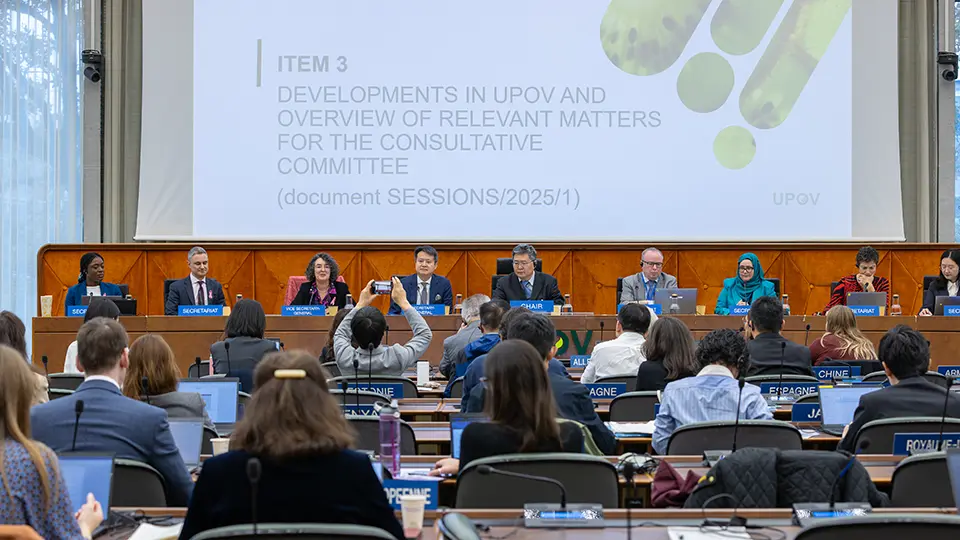Concluding a week of discussions at the 2025 International Union for the Protection of New Varieties of Plants (UPOV) sessions, Secretary-General Daren Tang underscored the plant variety protection (PVP) system’s, essential role in fostering innovation and development in plant breeding.
“New varieties adapted to local environments not only support innovation, investments, strong value chains and rural employment, they also increase the choice of healthy, nutritious and affordable food. By supporting breeders worldwide, the PVP system helps farmers and growers to boost incomes, increase yields and drive productivity.” said Mr Tang.
Speaking at the UPOV Council on Friday October 24, Mr. Tang emphasized the importance of building a more accessible and digital PVP system capable of keeping pace with rapid technological change. He noted that advancing digitalization will enable UPOV and its members strengthen innovation, efficiency, and inclusivity across the global agricultural community.
The 2025 sessions brought together more than 200 delegates from UPOV’s members and observers, to review progress on the organization’s strategic priorities and developments over the past year.
Key highlights included the formal welcome of Nigeria as UPOV’s newest member, in-depth discussions on the Strategic Business Plan 2026–2029, and exchanges on how new technologies are transforming plant variety protection and driving innovation in agriculture.

Addressing the UPOV Council, Mr. Fatuhu Muhammed, Director General of the Nigerian Agricultural Seeds Council reaffirmed Nigeria’s dedication to global collaboration in plant variety protection.
“The Government of Nigeria is fully committed to collaborating with all member countries and the UPOV Secretariat in a spirit of unity and partnership. We look forward to working together to create a future where agricultural innovation thrives, sustainable development is achieved, and our farmers and breeders are empowered. We are confident that this membership will benefit future generations for years to come,” he stated.
On the sidelines of the sessions, UPOV held a Seminar on Cooperation with Breeders in Plant Variety Examinations, where members shared experiences on collaborating with breeders to make plant variety examinations more cost effective and efficient. Participants presented examples of cooperative testing approaches across national systems and discussed the benefits of collaboration in implementing the options provided under the UPOV Convention.
Throughout the five-day meetings, delegates exchanged views on promoting innovation in plant breeding, enhancing farmers’ access to improved varieties, and deepening collaboration among members to support sustainable agricultural development.
The sessions also saw the handover of UPOV leadership positions. Outgoing President of the Council, Mr. Yehan Cui (China), passed the baton to Mr. Anthony Parker (Canada). The Chair of the Administrative and Legal Committee, Ms. María Laura Villamayor (Argentina) handed over to Ms. Minori Hagiwara (Japan) while the Chair of the Technical Committee, Ms. Beate Rücker (Germany) was succeeded by Ms. Nuria Urquía Fernández (Spain).
In addition, members provided positive advice on the legislation of Malaysia, paving the way for the Southeast Asian nation to become a UPOV member once the laws are adopted.
Last year, more than 29,000 plant variety protection (PVP) filings were made - the ninth straight year of increase. With the recent accession of Nigeria, Africa’s most populous country, UPOV counts 80 members covering 99 states.
